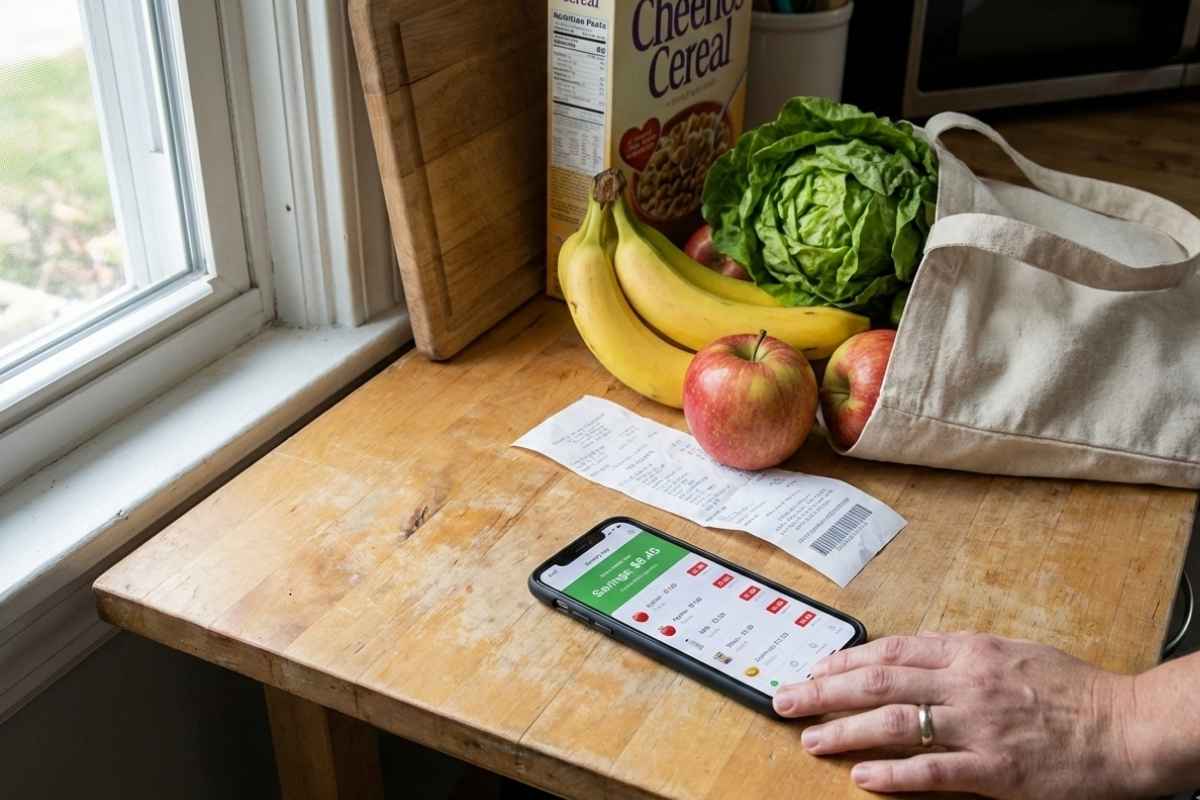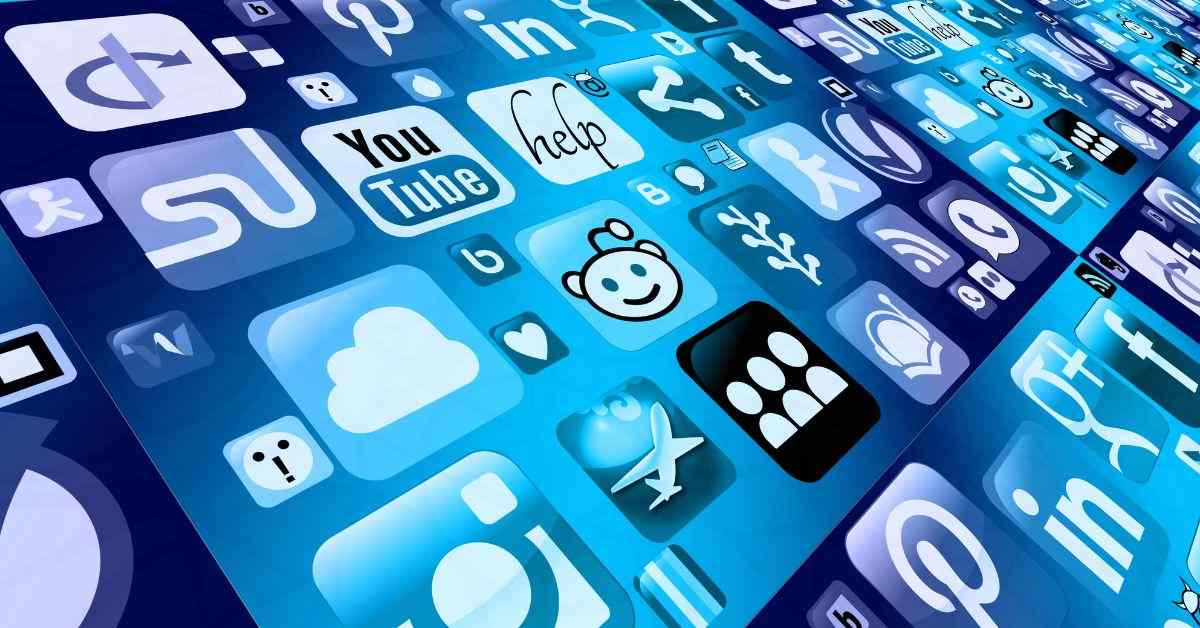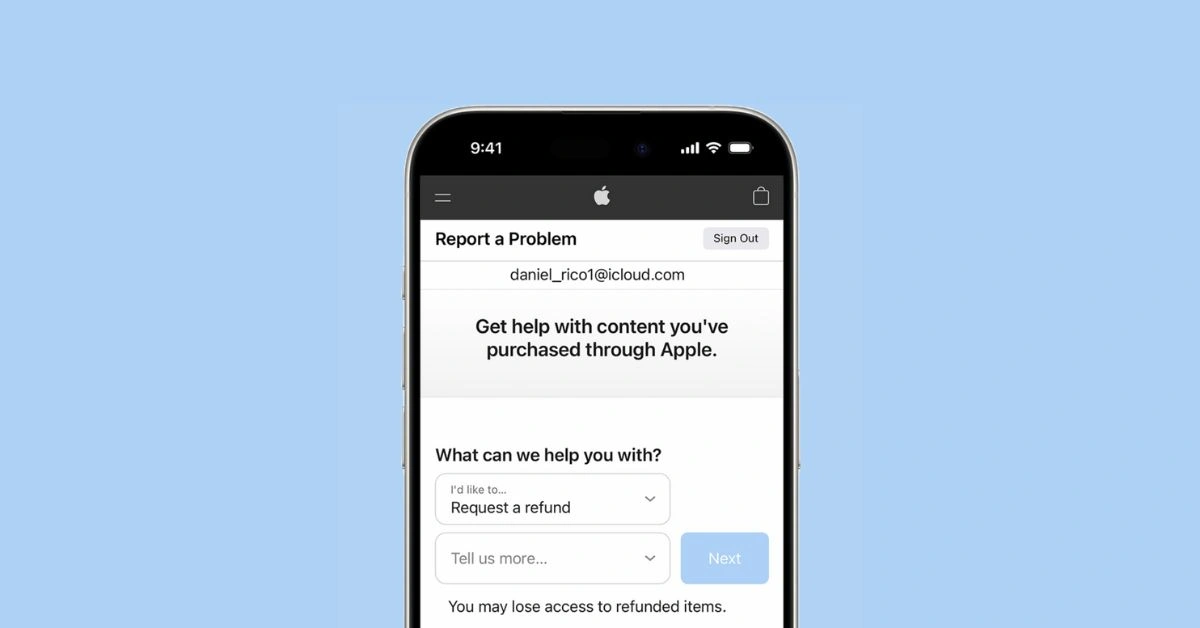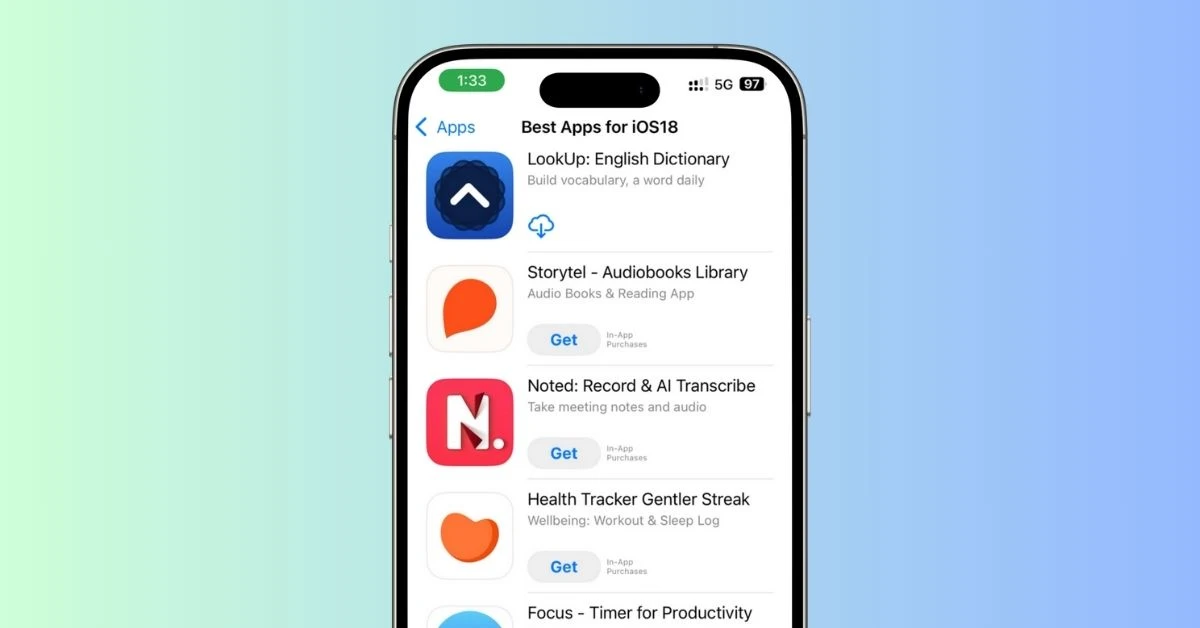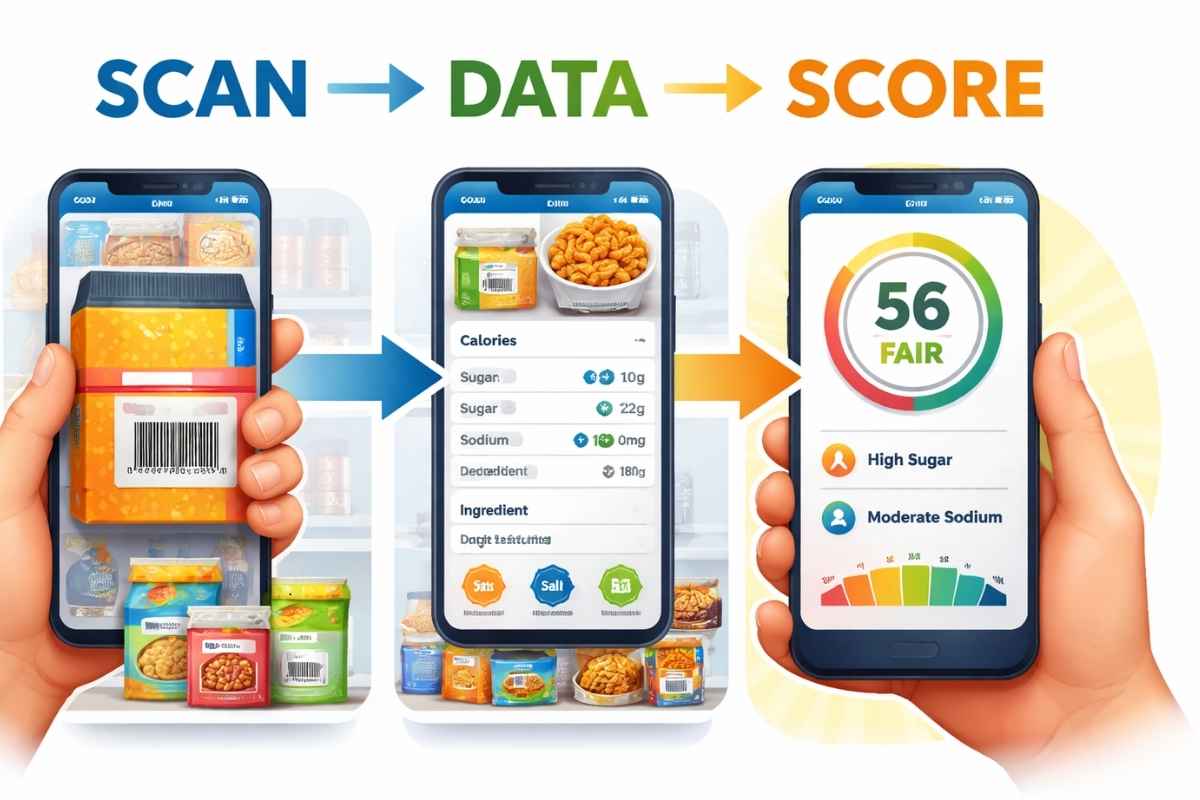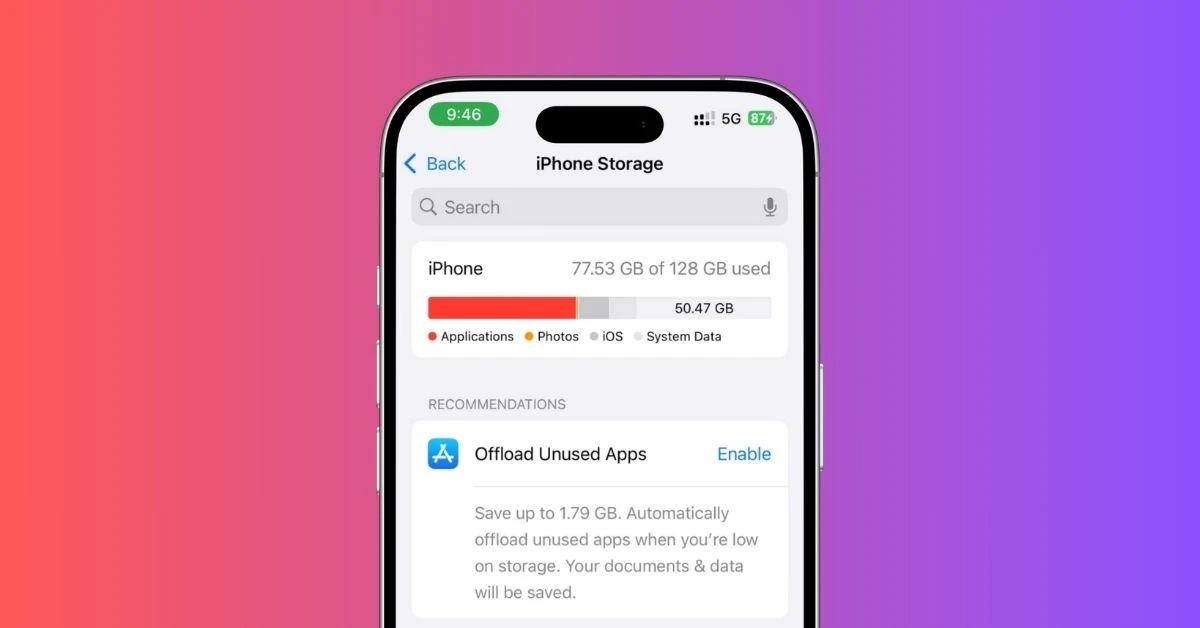The Growth of AI Apps on iOS (2020-2025 Trends & Statistics)
AI apps have taken over the App Store.
A few years ago, they were just a cool experiment.
NOW, they’re everywhere.
Whether you’re chatting with ChatGPT, editing photos with AI, or using smart assistants to plan your day, AI is shaping how we use our iPhones.
But how did we get here?
What changed between 2020 and 2025 that made AI apps go from niche to mainstream?
And more importantly, where are they headed next?
In this article, I’ll take you through the rise of AI apps on iOS, backed by real numbers, trends, and insights.
Whether you’re an app enthusiast, developer, or just curious about the future of AI, you’ll find everything you need to know right here.
Also read: You can also check out the most downloaded iPhone apps here.
AI App Growth on iOS (2020-2025) – A Yearly Breakdown
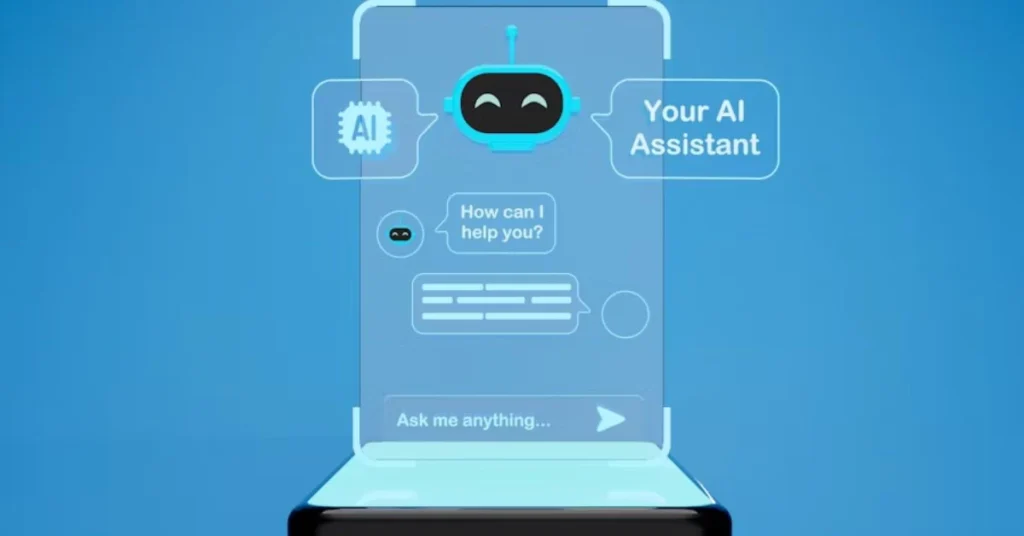
AI apps didn’t just explode overnight.
Their growth happened in phases, with each year bringing something new.
Let’s break it down year by year.
1. 2020-2021: The Early Days of AI on iOS
Back in 2020, AI apps were mostly chatbots, voice assistants, and basic automation tools.
Apple’s Siri was already there, but third-party AI apps were still finding their place.
A few AI-powered writing assistants and productivity tools (like Grammarly) started gaining popularity, but nothing groundbreaking.
The App Store had AI-based apps, but most people weren’t actively searching for them.
AI was still a buzzword, not something people used daily.
2. 2022-2023: The AI Boom Begins
This is when things got exciting.
Generative AI entered the scene, and suddenly, AI wasn’t just a background tool.
It was the main feature.
- ChatGPT, launched in November 2022, became the fastest-growing consumer application in history, reaching 100 million users within just two months. By February 2025, it had over 400 million weekly active users
- AI-powered image generators like Lensa AI and WOMBO Dream went viral, flooding social media with AI-created portraits and artwork.
- AI transcription tools like Otter.ai started making life easier for students and professionals.
By the end of 2023, AI apps were no longer a niche market.
They were in the top charts of the App Store, and developers rushed to integrate AI into their apps.
3. 2024-2025: AI Becomes a Must-Have Feature
By 2024, AI apps weren’t just growing—they were dominating.
The numbers prove it:
- AI app downloads hit 2.2 billion in 2024 (with India leading the way).
- AI-powered apps accounted for nearly 20% of the top 100 apps on iOS.
- Monthly downloads of AI apps jumped 19x from early 2023 to late 2024.
At this point, almost every app category had AI-powered features:
- Education apps using AI for tutoring and homework help.
- Finance apps predicting stock trends with AI.
- Health apps offering AI-driven fitness and wellness plans.
AI wasn’t just an extra feature anymore.
It became something users expected in an app.
Market Size and Revenue Growth
AI apps aren’t just popular.
They’re making serious money.
In just a few years, what started as a niche market has turned into a multi-billion-dollar industry.
Let’s look at how AI apps on iOS have grown in terms of revenue and market size.
1. How Much Are AI Apps Making?
- In 2023, AI apps brought in $455 million in revenue.
- By 2024, this number skyrocketed to $1.3 billion—a 180% increase in just one year.
- The AI app industry is projected to hit $3.3 billion by the end of 2025.
That’s insane growth.
And it’s not just one or two apps making money.
AI-powered tools across different categories are cashing in.
2. Where’s the Money Coming From?
Most AI apps use a freemium model, meaning they offer free basic features but charge for premium upgrades.
Here’s how they make money:
- Subscriptions – Apps like ChatGPT Plus, Grammarly Premium, and Notion AI make money by offering paid plans with extra features. ChatGPT alone accounted for 40% of global AI app revenue in 2024.
- One-time Purchases – Some AI apps, especially in photo and video editing, charge a one-time fee for premium tools.
- In-App Purchases (IAPs) – Apps like Lensa AI and Remini let users buy credits to process more AI-generated images or videos.
3. Who’s Spending the Most?
- The U.S. leads the way, accounting for 45% of AI app revenue on iOS.
- India is the fastest-growing AI app market, with over 21% of global AI app downloads.
With more people using AI apps daily for work, creativity, and entertainment, these numbers are expected to keep growing in the coming years.
Most Popular AI App Categories
AI isn’t just for chatbots anymore.
From photo editing to education, AI is making its way into almost every app category on iOS.
Here are the AI-powered app types that have taken off the most.
You can also check out my recently published research report, where I analyze the proportion of free versus paid iPhone apps and dive into the top app categories.
1. Chatbots & Virtual Assistants (Most Popular Category)
AI chatbots are the biggest reason AI apps went mainstream.
Since ChatGPT launched, millions of people have been using AI chatbots for writing, coding, answering questions, and even casual conversations.
Popular Apps:
- ChatGPT – The most downloaded AI chatbot on iOS.
- Google Gemini – Google’s AI assistant with deep search integration.
- Microsoft Copilot – AI-powered productivity and writing tool.
Why are they popular?
They feel like talking to a real person.
And they’re improving every year.
2. AI Art & Creativity (Photo & Video Editing Boom)
AI has revolutionized content creation, especially in photo and video editing.
In 2024, AI-powered editing apps dominated the App Store, helping users create stunning images, avatars, and AI-generated artwork in seconds.
Popular Apps:
- Lensa AI – Viral AI portrait generator.
- WOMBO Dream – AI-powered digital art creator.
- Remini – AI photo restoration and enhancement tool.
These apps have gained millions of downloads, especially in creative communities and social media users.
3. Productivity & Writing (AI as Your Smart Assistant)
AI is making work easier and faster by helping with writing, brainstorming, and organizing information.
Whether you’re a student, writer, or office worker, there’s an AI app to boost your productivity.
Popular Apps:
- Notion AI – AI-powered note-taking and content summarization.
- Grammarly – AI writing assistant that corrects grammar and style.
- Jasper AI – AI content creation tool for businesses.
AI is not replacing human creativity.
But it’s definitely helping people work smarter.
4. Education & Research (AI for Students)
Students and researchers are huge adopters of AI apps, using them for homework help, studying, and research.
AI can now solve math problems, summarize textbooks, and even transcribe lectures.
Popular Apps:
- Photomath – AI-powered math solver.
- Gauth AI – AI tutoring and homework help.
- Otter.ai – AI transcription for lectures and meetings.
AI is changing the way people learn—and students love it.
Also read: Best AI apps for students
5. Finance & Investment (AI for Money Management)
AI-powered finance apps are helping people track spending, predict stock trends, and even automate investments.
Popular Apps:
- Robinhood AI – AI-powered investment recommendations.
- Wealthfront – AI-driven financial planning tool.
- Mint AI – AI-powered budgeting tool.
With more people looking for smarter ways to manage money, AI-powered finance apps are seeing a huge rise in popularity.
6. Health & Wellness (AI for Fitness & Mental Health)
AI is even helping people stay healthy and fit by offering personalized workout plans, meditation guides, and even AI-driven health analysis.
Popular Apps:
- Fitbod AI – AI-powered fitness coaching.
- Calm AI – AI-driven meditation and relaxation.
- Ada Health – AI symptom checker for medical advice.
AI is making personalized health and wellness accessible to everyone.
Also read: Best ADHD apps for iPhone
User Demographics & Adoption Trends
AI apps aren’t just for tech geeks anymore.
People of all ages and backgrounds are using them for everything from chatting to studying, working, and even managing their health.
But who are the biggest users?
Let’s break it down.
1. Who Uses AI Apps the Most?
Age Groups:
- 18-34 years old – The biggest group using AI apps. They’re tech-savvy, love experimenting with new apps, and use AI for productivity, entertainment, and social media.
- 35-50 years old – This group uses AI mostly for work, finance, and personal organization. Many professionals rely on AI for emails, research, and automation.
- Students (13-24 years old) – AI is becoming a must-have for students, with apps like Photomath, Gauth AI, and ChatGPT helping with homework and learning.
Regions Where AI Apps Are Most Popular:
- United States – The largest market for AI apps (45% of revenue comes from the U.S.).
- India – The fastest-growing AI app market, with more than 21% of global AI app downloads.
- Europe – A growing market, especially in countries like Germany, the UK, and France, where AI is widely used for work and creativity.
Most Common Reasons People Use AI Apps:
- For Productivity – Writing, organizing tasks, summarizing content.
- For Learning – Studying, solving math problems, transcribing lectures.
- For Fun & Creativity – Generating images, chatting with AI, creating videos.
- For Work – Automating emails, data analysis, AI-powered brainstorming.
- For Finance & Investing – AI-driven stock predictions, budgeting tools.
AI apps are becoming a part of daily life for millions of people.
And as AI keeps improving, even more people will start using them regularly.
The Impact of AI Apps on the iOS Ecosystem
Apple’s iOS ecosystem has played a huge role in the rise of AI apps.
But AI apps are also changing how people use iPhones.
And even influencing Apple’s own AI strategy.
Let’s look at how AI is reshaping the iOS world.
1. Apple’s Role in AI App Growth
Apple has always focused on AI, but it really started integrating AI deeply into iOS in recent years.
Some key moves:
- Neural Engine (A-series & M-series chips) – Apple’s AI-focused hardware helps AI apps run smoothly on iPhones.
- On-Device AI Processing – Apple prioritizes privacy, so many AI features run directly on iPhones instead of sending data to servers.
- Siri Improvements – Apple is slowly making Siri smarter (but still lags behind ChatGPT).
These moves have created the perfect environment for AI app developers.
Apple’s App Store policies also encourage AI innovation.
Though, strict privacy rules sometimes slow down certain AI features.
2. AI Is Changing the Way People Use iPhones
AI apps aren’t just new tools.
They’re changing iPhone habits.
Before AI Apps:
- People searched for info manually.
- Photo editing was a long process.
- Notes and emails were written from scratch.
After AI Apps:
- Users ask AI assistants instead of searching Google.
- AI-powered photo editors create stunning images in seconds.
- AI tools summarize notes, draft emails, and automate work.
AI apps have made iPhones feel smarter than ever before.
3. The Rise of AI-Powered App Integrations
Apple is also pushing AI into its own apps and allowing developers to integrate AI into existing iOS features.
Some big examples:
- AI in Shortcuts – Users can create custom AI-powered automations.
- Live Transcription in iOS – AI can now transcribe calls and audio in real-time.
- AI-Powered Search – Apple is slowly improving Spotlight search with AI suggestions.
Expect even deeper AI integration in future iOS updates, making AI a core part of the iPhone experience.
AI is no longer just an app category.
It’s becoming an essential part of the iOS ecosystem.
And with Apple investing more in AI, we’re just getting started.
Future Trends & Predictions (2025 & Beyond)
AI apps have already transformed how we use iPhones.
But this is just the beginning.
In the next few years, AI is expected to become even more powerful, more personalized, and more deeply integrated into iOS.
Here’s what’s coming next.
1. Apple’s AI Roadmap – Will Apple Compete with AI Apps?
Apple has been slow but steady with AI.
While third-party apps like ChatGPT and Notion AI are leading the AI revolution, Apple is working on its own AI models.
What to Expect from Apple in 2025 & Beyond:
- A Smarter Siri – Apple is rumored to be working on a ChatGPT-like upgrade for Siri.
- AI-Powered iOS Features – Expect AI summarization, transcription, and auto-reply features built into iOS.
- Apple’s Own AI Model – Apple might launch its own AI chatbot or generative AI system integrated across Apple devices.
If Apple fully embraces AI, it could either boost third-party AI apps or push them out of the market with built-in AI features.
2. AI Regulations & Privacy Concerns
With AI apps collecting massive amounts of data, governments are starting to introduce new rules.
Apple, known for its strict privacy policies, may enforce tougher regulations on AI apps in the App Store.
Possible Future Restrictions on AI Apps:
- Stricter data privacy rules (limiting AI data collection).
- Bans on AI-generated deepfakes & misleading content.
- More transparency on how AI apps use user data.
Some AI apps may have to change their business models to comply with these rules.
3. AI-Driven Personalization & Automation
In the near future, AI won’t just help users.
It will understand them.
AI apps will become hyper-personalized, learning from user behavior to provide:
- Smarter AI Assistants – AI that adapts to your habits and automates repetitive tasks.
- AI-Powered Scheduling – AI that organizes your calendar, books flights, and reminds you of important tasks.
- AI-Powered iPhone UI – AI might redesign your iPhone’s home screen based on your daily activities.
AI won’t just be a tool.
It will become a daily assistant that understands you better than ever.
The next few years will be exciting and unpredictable for AI apps on iOS.
Whether it’s Apple’s own AI, new regulations, or deeper personalization, one thing is certain: AI is here to stay.
Conclusion & Final Thoughts
AI apps have gone from a niche trend to one of the biggest shifts in the App Store’s history.
In just five years, we’ve seen AI go from basic automation tools to powerful assistants that help with writing, creativity, productivity, and even decision-making.
But this is only the beginning.
- AI-powered apps are growing faster than ever, with billions of downloads and multi-billion-dollar revenue.
- Apple is slowly integrating AI into iOS, which could either boost AI apps or create tough competition.
- AI is expected to become more personalized, more intuitive, and more deeply embedded into how we use iPhones.
One thing is clear: AI isn’t just another tech trend; it’s shaping the future of mobile apps.
So, whether you’re a developer, an app enthusiast, or just curious about AI’s future, one thing is certain—AI apps are here to stay, and they’re only going to get smarter.
FAQs
1. How fast are AI apps growing on iOS?
AI apps have seen explosive growth on iOS. In 2020, they were a small niche, but by 2024, they accounted for over 150 million downloads and $1.3 billion in revenue. This number is expected to triple by 2025 as AI continues to evolve.
2. What are the most popular AI apps on iOS?
Some of the top AI apps on iOS include:
→ ChatGPT – Most popular AI chatbot.
→ Notion AI – AI-powered note-taking & productivity.
→ Photomath – AI math solver.
→ Grammarly – AI-powered grammar and writing assistant.
→ Lensa AI – AI photo editing & avatar creation.
→ Remini – AI photo restoration.
3. How do AI apps on iOS make money?
Most AI apps use the freemium model, offering free features with premium upgrades. Revenue comes from:
→ Subscriptions (e.g., ChatGPT Plus, Grammarly Premium)
→ One-time purchases (e.g., AI photo filters)
→ In-app purchases (e.g., AI-generated content credits)
4. What are the biggest AI app categories?
The most popular AI-powered categories on iOS include:
→ Chatbots & Virtual Assistants (e.g., ChatGPT, Google Gemini)
→ Photo & Video Editing (e.g., Lensa AI, Remini)
→ Writing & Productivity (e.g., Notion AI, Grammarly)
→ Education & Learning (e.g., Photomath, Gauth AI)
→ Finance & Investing (e.g., Robinhood AI, Mint AI)
5. Is Apple planning to launch its own AI app?
Apple has been working on AI-powered features for iOS but hasn’t launched a standalone AI chatbot yet. However, there are rumors that Siri will get a major AI upgrade and Apple might introduce its own AI assistant to compete with ChatGPT.
6. Are AI apps safe to use on iOS?
Most AI apps on iOS follow strict privacy policies, but users should still be careful. Apple’s App Store guidelines ensure that AI apps handle data responsibly, but it’s always a good idea to check privacy policies before sharing personal information.
7. Will AI apps replace human jobs?
AI apps are automating many tasks, but they are more of a tool than a replacement. Instead of taking jobs, AI apps enhance productivity by helping with writing, research, and automation. The key is learning how to use AI effectively.
8. How will AI apps evolve in the next 5 years?
By 2030, AI apps will likely become:
→ More personalized – AI will adapt to individual users.
→ More integrated – Apple will likely add AI into core iOS features.
→ More powerful – AI will process data faster with better on-device AI chips.
9. Are AI apps free to use on iOS?
Many AI apps have free versions, but premium features often require a subscription. For example, ChatGPT has a free version, but ChatGPT Plus costs $20/month for advanced AI capabilities.
10. What is the future of AI on iPhones?
Apple is expected to deepen AI integration into iOS, meaning that future iPhones will come with built-in AI features for search, automation, and personalization. AI won’t just be in apps, it will be a core part of how iPhones work.

